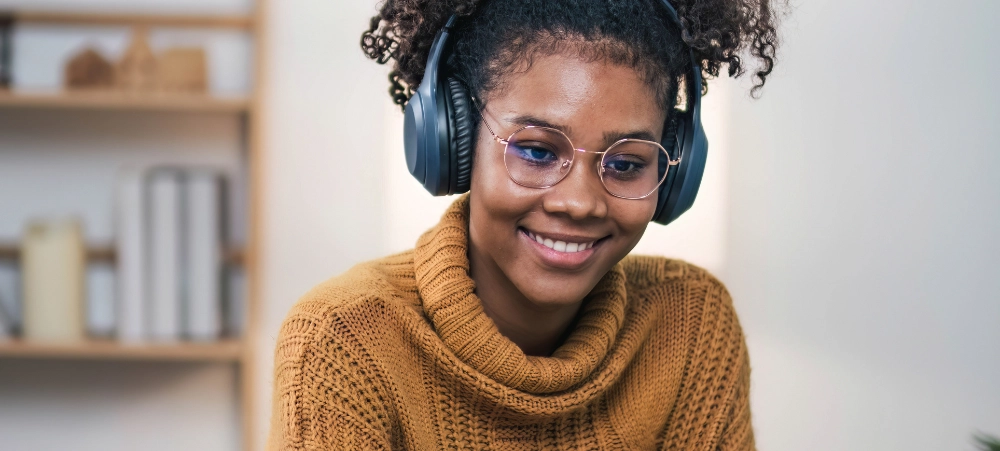Anxiety is a pervasive issue that can affect students of all ages and from all backgrounds, regardless of whether they are enrolled in traditional brick-and-mortar schools or online educational programmes. However, studying online can present unique challenges that need to be considered when choosing a school. That is why it is important for online schools to actively mitigate potential concerns right from the start, mental health and academic experts say.
“While anxiety is most definitely not unique to the online environment, the online learning environment does present distinct challenges that can give rise to anxiety, and it is imperative that online schools both acknowledge and address these challenges to ensure a complete educational journey that is not only about getting to grips with academics but also the ongoing development of students,” says Nasrin Kirsten, Group Psychologist at The Independent Institute of Education, who oversees Student Wellbeing at ADvTECH Schools, SA’s leading private education provider.
“Online students often face a blend of technological, social, and academic pressures that can differ significantly from those experienced in a traditional classroom setting. Suppose there is a lack of face-to-face interaction, over-reliance on digital communication, and a lack of positive motivation to stay on track. In that case, online students are likely to experience heightened anxiety levels,” she says.
“Therefore, it is essential for parents to carefully evaluate online schools to ensure they have implemented strategies and support systems tailored to mitigate these unique online challenges.”
Kirsten notes that social isolation is a significant contributor to anxiety in online learners.
“Online schools must offer opportunities for meaningful interaction with teachers and peers, as structured, regular engagement can prevent feelings of loneliness,” she says.
Lack of boundaries between school and home also leads to stress, as students may feel they’re constantly in ‘school mode’ without time to unwind.
“Online schools need to guide students in setting routines and healthy study habits to help manage this,” Kirsten explains. Technology-related frustrations, such as slow internet or unfamiliar tools, can further intensify anxiety. Schools that provide robust technical support and foster digital literacy can help alleviate these issues.
Performance anxiety is another challenge, especially when feedback is insufficient. Kirsten emphasises that regular, personalised feedback is vital for students to feel supported in their progress.
Finally, while online learning offers flexibility, some students may find it overwhelming without a structured schedule. Kirsten advises parents to choose schools prioritising mental health, offering resources like counsellors and workshops to support students’ emotional well-being. This approach ensures that online learning is both practical and supportive.
Colin Northmore, Principal at Evolve Online School, says online schools must ensure the comprehensive development of their students, addressing cognitive, emotional, social, physical and spiritual growth.
“An important aspect is the curriculum, which needs to be designed to foster holistic development by integrating various aspects of a child’s growth. This includes a focus on foundational, social, and emotional learning skills. There also needs to be real people with whom students can connect through life coaches to help students learn how to manage stress and anxiety and develop coping mechanisms, resilience, and a growth mindset.
The secret to getting the balance right lies in the word balance. The question is, what should be balanced? Children need Screen, Green, Team and Dream time, he says.
“A great online school must find opportunities for students to put away their screens and interact with the physical world (Green Time). The school can do this, for instance, by introducing scientific experiments using everyday household items. Schools can further augment this by providing physical resources, such as the Adventure Boxes supplied by Evolve.”
Northmore says the question of screen time is also one that needs careful and well-planned implementation.
“There is an essential difference between sedentary and cognitive screen time. Children are more likely to experience anxiety when they are using their screen time on social media and can find some relief from just watching a fun series. Cognitive screen time (when using their devices to solve problems or learn new skills and concepts) may not be relaxing, but it builds a sense of control and achievement that can ease their fear of failure.”
The time spent in live classes needs to be as interactive as possible so that the students can develop their social skills and engage with the learning in a way that makes the screen disappear into the background (Team Time).
“Opportunities need to be created for pair work and teamwork to learn how to give and receive feedback and a host of critical transferable skills like assertiveness, resilience, problem-solving and effective communication,” says Northmore.
Perhaps the most important, is Dream Time.
“The human imagination is the most powerful tool for overcoming obstacles and creating creative solutions to seemingly unsolvable problems. Mindfulness exercises and imaginative play are crucial to the development of the imagination. Online students must be allowed to play when they are younger, and explore as they grow while being encouraged to feel wonder and awe, to develop holistically,” Northmore says.





